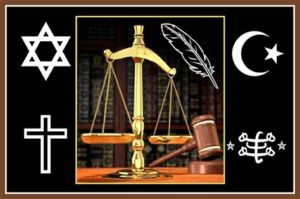March 25, 2022

Should we be hopeful that times they might be “a-changin’? Could we be reaching a tipping point when reality would finally overcome the fantasy that Israel is always good and that Palestinians are always evil?
I thought so when, several weeks ago, Amnesty International issued its report on conditions in Israel/Palestine that concluded after four years of study that Israel “has perpetrated the international wrong of apartheid…that almost all of Israel’s civilian administration and military authorities, as well as governmental and quasi-governmental institutions, are involved in the enforcement of the system of apartheid…that the patterns of proscribed acts perpetrated by Israel both inside Israel and in the OPT form part of a system as well as a widespread attack directed against the Palestinian population…[that Israel ]has committed…the crime against humanity of apartheid under both the Apartheid Convention and the Rome Statute.“
When an organization with AI’s record and credibility joined a growing list of Israeli, Palestinian, and International organizations that had reached the same conclusion, I wanted to believe, it was a game-changer. AI laid out the reality in such painful detail of the oppression taking place over decades, concluding that could only be described as Apartheid and I was sure it would open eyes and minds and change the conversation and the politics. I thought now there was a chance to open closed minds in my Jewish world and create a different dialogue about bringing justice to a part of the world that painfully needs it.
Since then, two other independent bodies have drawn their own similar conclusions. The International Human Rights Clinic at Harvard Law School on February 28th concluded its submission to the United Nations Independent International Commission of Inquiry on the Occupied Territory, including East Jerusalem, and Israel reached the same end conclusion as had AI just weeks earlier. Their detailed legal analysis found that “Israel’s deployment of a dual legal system in the occupied West Bank, and the resulting systematic discrimination against Palestinians and subordination of Palestinians’ civil and political rights to the rights of Jewish Israeli citizens settled in the occupied West Bank, amount to a breach of the prohibition of apartheid under international law.”
Just days ago, United Nations Special Rapporteur Michael Lynk accused Israel of apartheid in his detailed review that used the legal definition as the lens for assessing conditions on the ground. “Is this situation now apartheid? Applying each of the three steps of the amalgamated test from the Convention Against Apartheid and the Rome Statute, the Special Rapporteur has concluded that the political system of entrenched rule in the occupied Palestinian territory which endows one racial-national-ethnic group with substantial rights, benefits and privileges while intentionally subjecting another group to live behind walls, checkpoints and under a permanent military rule “sans droits, sans égalité, sans dignité et sans liberté” satisfies the prevailing evidentiary standard for the existence of apartheid.”

Yet the powerful forces of those who advocate that Israel is always right and dismisses criticism of Israel out of hand, too often labeling it as evidence of antisemitism, seems undeterred.
Shortly after I received the AI report I wrote about that vitriol and hostility as it descended on Amnesty International before their report was made public by loud and powerful voices in the established Jewish Community. Even an organization with impeccable credentials such as AI was to be damned for failing to see Israel as other than a paragon of Democracy. I described my wish that these forces would not be able to hide this truth. “Just dismissing these tough questions does not make them go away. In doing so, Israel and its supporters simply ignore the glaring reality that is right in front of their faces. If one challenges the policies and practices that discriminate on behalf of Jews because they are Jews, you are being antisemitic, end of discussion. And if these practices inflict ongoing, significant harm on Palestinian men, women, and children because they are Palestinians and not Jews, that is to be ignored. To protest is to hate Jews.”
Even before the UN Rapporteur’s report was fully public, the Israeli Government gave their marching orders to those in this country who will be quick to damn it. As reported by the New York Times, “The Israeli government said that Prof. Lynk’s claims were baseless, devoid of context and the latest iteration of a smear campaign aimed at undermining Israel’s right to exist. Israel and its supporters have long argued that Prof. Lynk is biased against Israel, a charge he has denied.”
The power of these voices is strong; it is well funded and politically/socially influential. It limits visibility and makes presenting the reasons that personal and political opinions of Israel/Palestine need to be reexamined.
As the ripples of AI’s work faded away, I joined with a group of pro-Palestinian advocates to try to keep building its impact. Buying ad space in one of Chicago’s daily newspapers seemed an obvious step. We had the funds and a range of organizational sponsors to fuel this effort. We approached the Chicago Sun-Times because it was the most “liberal” of Chicago’s two general circulation newspapers. Then we learned how strong the pro-Israel lobby is. How their power evokes fear of retribution. The Sun-Times refused to run this ad and has refused to even tell us what policies or guidelines the ad violated, but it was clear that it was the subject matter and the accusation directed at Israel that made this too hot for them to handle. (We were, after losing another week, finally able to get the ad run in the Chicago Tribune this past Sunday.)
This past Monday I attended the meeting of the Illinois Investment Policy Board, a body which was established in 2015 with one primary purpose: to blacklist companies that had the audacity to feel doing business in Israel or even just in the occupied territories violated their values or just did not make business sense. This body has the power to instruct the states’ several pension funds to divest (yes that is the very thing that Israel’s supporters find unacceptable from those who support Palestinian rights) from designated companies, an act which may harm them financially but definitely is aimed at besmirching their reputations.
This Commission had, earlier this year, punished Unilever because Ben and Jerry’s, their subsidiary, had decided to stop selling ice cream on occupied lands in Palestine. Monday, the Commission was continuing to consider whether Morningstar, a firm that provides investment guidance, should be added to the blacklist because one of their units has issued guidance that pointed at the heightened investment risks that Israel’s occupation poses, advice that would make prudent investors think twice about the wisdom of putting their capital into Israel.
This body, and the process they administer, were created to arm the supporters of Israel with one more weapon they could wield to fend off efforts to bring the debate over Israeli occupation to a higher level. The bill that created this body was the result of an effective use of state political power by one community, my state’s organized Jewish Community, to harm another. It was established by the successful use of the power of those who are willing to look away from the realities that are there to be seen, away from the harms taking place in plain sight to weaponize the power of Illinois against the Palestinian people. It was created to ignore the growing list of respected voices that have concluded that Israel is practicing Apartheid and that the Palestinian People are their victims. And so, the Policy Board last Monday continued on as if none of these facts matter. They do not merit taking time out to study them.
The blindness of loyalty to Israel was further driven home by recent news that the American-Israel Political Affairs Committee (AIPAC)’s Political Action Committee had endorsed 37 Republican candidates in the upcoming congressional elections who had voted against recognizing the election of Joe Biden in 2020. AIPAC’s response to those who protested their looking past the serious threat to our nation’s democracy that supporters of what has become known as the “big lie” represents has been that supporting Israel is more important. AIPAC’s spokesperson Marshall Wittman explained their rationale in comments reported by the Jewish Telegraphic Agency. “As a single-issue organization, we remain focused on our mission of building bipartisan support in Congress to strengthen the U.S.-Israel relationship,”
And when challenged on the wrongness of this action, AIPAC demonstrated how one issue they really are. AIPAC CEO Howard Kohr and President Betsy Korn published a public letter that said “For decades, we have built the pro-Israel movement and our political organizing arm in Washington on the premise that everyone can and should be a friend of Israel because a strong US-Israel relationship benefits both countries,. We make no apologies for this position. There are many important issues on which Americans disagree – but Israel should not be one of them.” Even when the issue is the very nature of our country, the integrity of our elections.
These past weeks have given me a reason to have some hope that it was more possible to engage, debate, and look at a painfully reality. But these past weeks have also shown me how steep the hill we are climbing is.
The reality for too many of my Jewish brethren is that we are prevented as a community from living out the ancient injunction, “Justice, Justice you should pursue” by our unwillingness to open eyes. For those who are willing to think about the painful complexity of Israel/Palestine and the painful reality of how Israel is a perpetrator of that pain, it too often remains a private matter, too scary to air publicly and too scary to demand change. It is possible to consider it in its fullness only outside the boundaries of most organized Jewish life.
And Palestinians and Palestinian-Americans are left to advocate against a wall of power. In Israel/Palestinian it is a wall of cement, barbed wire, and checkpoints. In our country, it is a wall of political power that has successfully erased the reality of daily life in Israel.
